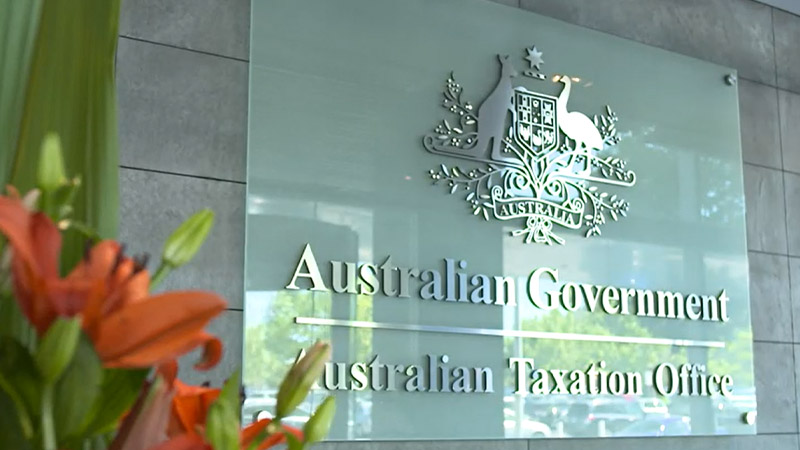Further calls to expand ATO portal to wider SMSF sector
The Tax Institute has called for access to online services for tax agents to be expanded to SMSF administrators, advisers, auditors and lawyers, with many professionals forced to use antiquated forms of communication.
In a submission to the Australian National Audit Office in relation to the audit of the ATO’s engagement with tax practitioners, the Tax Institute stated that Online services for tax agents (OSfA) should be expanded to other types of tax practitioners, beyond just tax agents and BAS agents.
The submission noted that the term tax practitioners covers a wide variety of professions.
“Given the complexity of our tax, superannuation and legal system, taxpayers will often need to engage a variety of specialists including bookkeepers, registered BAS agents, registered tax agents, accountants, lawyers, tax (financial) advisers and SMSF administrators and SMSF auditors,” the submission explained.
However, only tax agents and BAS agents have access to OSfA, which allows them to securely interact with the ATO, the Tax Institute noted.
The submission gave the example of lawyers who are often engaged by taxpayers to assist with objections, litigation or private rulings applications.
“Currently, unless the lawyer is also a registered tax agent or is working through the taxpayer’s existing tax agent, lawyers are often required to initiate contact with the ATO through a physical letter or facsimile. Feedback from our members indicates that this issue is more prevalent for tax practitioners representing individuals and smaller businesses,” it stated.
“We consider that both of these methods are antiquated forms of communications and not sufficiently secure in today’s digital world where protecting personal identification details is paramount.”
These communication methods, the submission stated, also have the impact of leaving these tax practitioners in a “blackhole” where they cannot confirm whether the communication has been received or processed.
“Feedback from our members indicates that the ‘blackhole’ period is not mitigated by contacting the ATO for advice, where they are told to wait. This creates enormous inefficiencies for these practitioners, and creates significant pressure from taxpayers who do not appreciate the circumstances and blame the tax practitioner for the ATO’s non-response,” said the Tax Institute.
The submission stated that OSfA should therefore be expanded or a similar portal created that allows other tax practitioners, such as lawyers, SMSF administrators and SMSF auditors, to communicate with the ATO in a more contemporary manner.
“This would also allow sensitive information or evidence to be more proficiently provided through a secure channel, and increase taxpayer confidence in tax practitioners as they are able to utilise modern, and perceived professional, communication methods,” it stated.
The expansion of OSfA or provision of a similar online portal, the submission said, would be particularly beneficial where taxpayers need to engage multiple advisers to assist them with certain transactions such as the transfer balance account for superannuation purposes.
“In these cases, a financial adviser may provide the initial advice to the taxpayer on the establishment of an income stream, and their tax agent would typically deal with the implications if the taxpayer’s transfer balance cap is exceeded,” it said.
“It is common for the financial adviser to not have access to the taxpayer’s online account. The process could be streamlined if all advisers involved in such dealings had access to the same information, even if the financial adviser could only view information without having access to edit or make any changes to the data.”
Last month, SMSF Alliance principal David Busoli said the restrictions around access to ATO data are leading to lost time, lost opportunities and increased costs for both advisers and administrators.
“Financial planners are charged with the responsibility for advising their clients on pensions and contributions but do not have the ability to access this information. The member’s personal accountant can but is usually unable to give advice. The member can, but usually doesn’t understand the significance of the numbers,” said Mr Busoli.
“The result is a degradation of the quality of advice for Australian consumers, unnecessary breach reporting by the ATO and an increase in time lost, opportunities lost and increased costs for all concerned.”
In the lead-up to the election, Assistant Treasurer Stephen Jones said Labor would be looking at a range of measures in the consumer data space, including improvements to the way advisers can access client information from the MyGov portal.
FPA chief executive Sarah Abood said any improvements in this area would certainly be welcomed by advisers, with the current arrangements making it difficult or even impossible to engage with government agencies such as the ATO and Centrelink on behalf of their clients.
“The idea of being able to efficiently and securely access that information in a timely way would be really transformative for many practices,” said Ms Abood.

Miranda Brownlee
Miranda Brownlee is the deputy editor of SMSF Adviser, which is the leading source of news, strategy and educational content for professionals working in the SMSF sector.
Since joining the team in 2014, Miranda has been responsible for breaking some of the biggest superannuation stories in Australia, and has reported extensively on technical strategy and legislative updates.
Miranda also has broad business and financial services reporting experience, having written for titles including Investor Daily, ifa and Accountants Daily.








